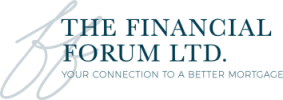Shopping around for a mortgage rate can be intimidating – there’s no doubt about it. And finding the perfect mortgage for your financial situation is no easy task, especially if you don’t know how to navigate the mortgage landscape. Additionally, with the recent interest rate hikes in Ontario, it’s important to talk to a professional who can help you make sense of your rate options. But before you sit down with a mortgage advisor it’s good to know the basics about what is available to you and what factors can change the mortgage rates from day to day.

Fixed Rate Mortgage
Lenders are offering Ontarians low fixed-rate mortgages but on short-term commitments. This means that your rate will be locked in, and your payments won’t fluctuate with the market conditions, but you will need to negotiate when the term is over. It’s a great option if you are risk-averse and need something more secure in the interim. Plus, if interest rates are low and expected to rise, locking in at a fixed rate can save you money. However, if there’s a significant difference between the fixed rate and variable, then it may not be worth paying for the fixed rate if interest rates are not expected to increase anytime soon.
Variable Rate Mortgage
Variable rate mortgages, on the other hand, are designed to fluctuate with market conditions. They are often less expensive but do not provide you with a safety net if the rates trend upwards. They may be the riskier option, but historically, have saved people more money than fixed rate mortgages. So, if you expect the interest rates to stay low and potentially fall then a variable rate is preferred.
Rate Influencers
To understand what determines interest rates you need to understand how they are funded. The variable rate mortgage products are pegged to the prime rate, where the prime rate is linked to the overnight rate, which is the rate that the Central Bank in Ottawa charges a financial institution to borrow money overnight. On the other hand, fixed-rate mortgages are connected to the Government of Canada Bond Yields. It is important to keep an eye on these rate influencers to help determine the direction interest rates will be trending.
Underlying Factors
Bank inflation, government policy, debt load, overall economic strength, along with real estate sales and development, are just a few of the factors that impact how lenders adjust their interest rates. And even with the recent increases in 2017 already, experts still forecast that the rates will be low for a long time to avoid shocking the Canadian economy.
Canadian consumers and the government are just not positioned to take on a fast increase due to their debt loads. And even with a strong economy and a demand for more residential development, the necessity for keeping the Canadian economy in check will help keep the mortgage rates down for a while to come.
With all the factors that impact mortgage interest rates, coupled with the different requirements by all the lenders, it’s best to talk to a professional before making any decisions. At Financial Forum, we have been Vaughan’s trusted advisors for years. We have helped thousands of people get the right mortgages for their financial condition and are ready to help you get yours. Call us today!






